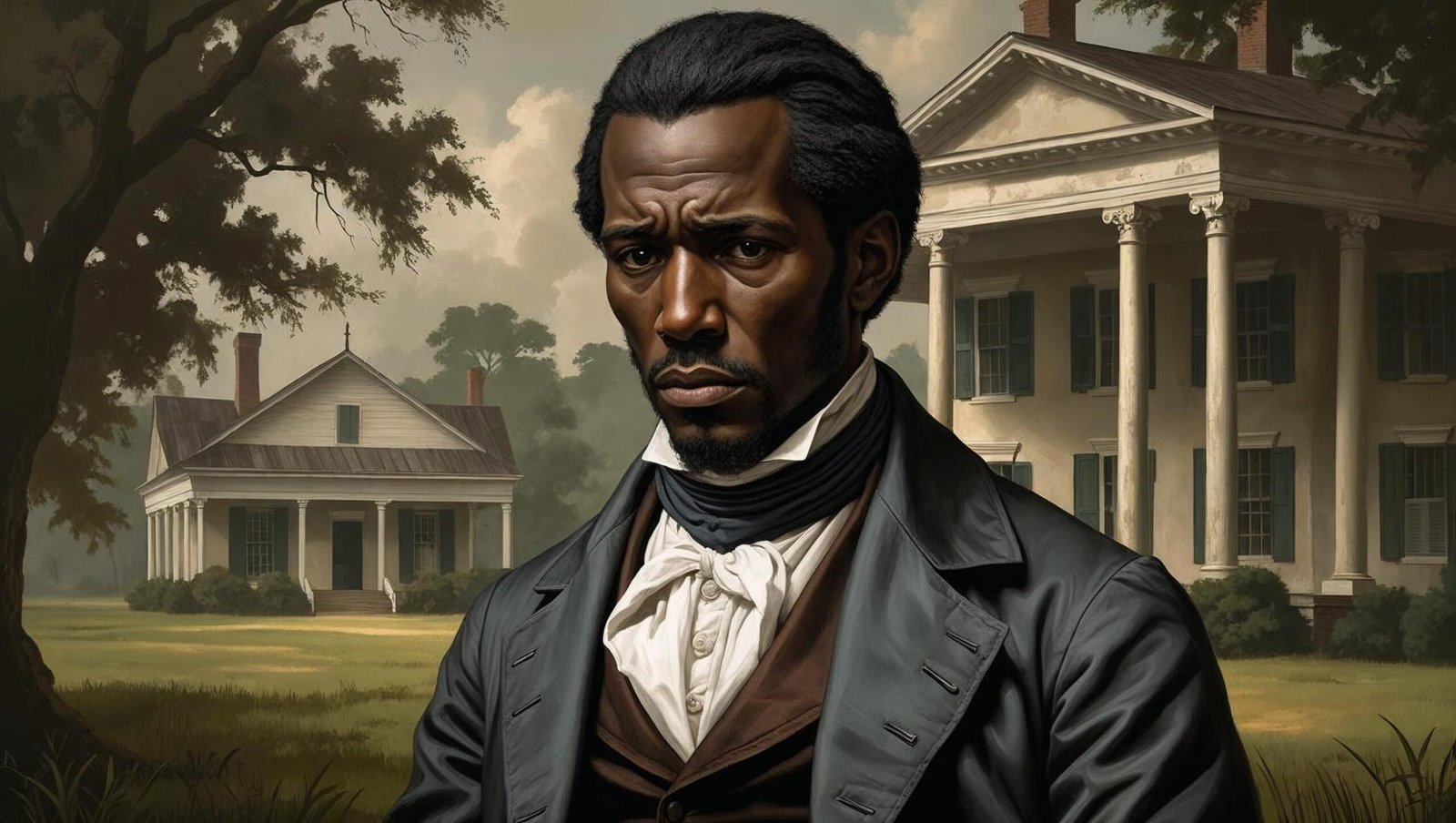12 Years a Slave by Solomon Northup: A Profound Memoir of Endurance, Injustice, and Liberation
1. Introduction
In this detailed 12 Years a Slave Book Review, we examine one of the most powerful autobiographical accounts of slavery ever written. Authored by Solomon Northup, a free black man who was kidnapped and sold into slavery, this gripping memoir recounts the cruelty of a corrupt system and the resilience of a man who never surrendered his identity.
Through rich narrative and haunting realism, Northup’s voice echoes through history, offering readers an essential perspective on the American past. This 12 Years a Slave Book Review invites readers to explore themes of endurance, justice, and humanity within the shadow of historical atrocity.
It stands not only as a literary work but also as a powerful reminder of the importance of remembering historical truth and learning from it. The 12 Years a Slave Book Review sheds light on the emotional landscape of survival and the cost of lost liberty.
It is a reflection on both personal suffering and universal human rights. Through this 12 Years a Slave Book Review, readers gain an unfiltered glimpse into a past scarred by cruelty and injustice, yet illuminated by the light of unwavering human spirit.

2. About the Author: Solomon Northup
Solomon Northup was a free-born African-American man who endured the unspeakable horrors of enslavement for twelve long years. His experience is not only documented with accuracy but also with a dignified voice of resistance and reflection.
In this 12 Years a Slave Book Review, we pay homage to Northup’s resilience and literary courage. His story, though personal, represents the anguish of countless individuals caught in the brutal machinery of human bondage.
His articulate recollection is a testament to the intellect and spirit of those wrongfully oppressed. The 12 Years a Slave Book Review emphasizes Northup’s invaluable contribution to literature and history.
His courage to document his ordeal speaks volumes about the power of the human voice when raised against injustice and cruelty. His life story offers an unshakable testament to dignity and fortitude in the face of adversity.
This 12 Years a Slave Book Review celebrates his authenticity. The vivid details with which he narrates his truth remain poignant and essential in any conversation about racial justice.
3. Historical Context of the Memoir
Published in 1853, 12 Years a Slave emerged during a time of great tension between the Northern and Southern United States. This was an era when the debate over slavery reached a fever pitch.
The memoir offered an unfiltered glimpse into Southern plantation life from the perspective of a kidnapped free man. As this 12 Years a Slave Book Review underscores, the book played a crucial role in shaping public opinion.
It helped fuel the abolitionist movement and gave undeniable evidence of the inhumanity within the institution of slavery. This 12 Years a Slave Book Review also highlights the context of antebellum politics, where growing division over slavery pushed America towards civil war.
The memoir’s publication served as both historical documentation and a form of political resistance. Through this 12 Years a Slave Book Review, we understand how literature can become an instrument of transformation, education, and empathy—reaching beyond its pages into the very conscience of a divided nation.
4. Summary of 12 Years a Slave
The memoir begins with Northup’s life as a respected violinist and family man in New York. Deceived under the guise of employment, he was abducted and sold into slavery in the South.
The book details his enslavement on various plantations and the brutality he faced. This 12 Years a Slave Book Review offers a chapter-wise walkthrough of his journey, culminating in his eventual rescue and return to freedom.
Each phase in the memoir serves as a stark revelation of the depravity of institutionalized slavery. This 12 Years a Slave Book Review captures the emotional transitions Northup undergoes—from disbelief and despair to hope and perseverance.
It reminds readers that the resilience of the human will cannot be caged indefinitely, no matter the circumstances. Through the structure of this 12 Years a Slave Book Review, readers appreciate the nuanced narrative, the vivid scenes of torment, and the ultimate affirmation of human strength and survival.

5. Major Themes Explored in the Book
Among the central themes are freedom, identity, resilience, morality, and justice. Northup’s story traverses the boundaries between liberty and captivity, shedding light on the psychological and emotional toll of slavery.
This 12 Years a Slave Book Review examines how these themes are not only personal to Northup but universally significant. The theme of hope endures even in the darkest moments, providing a moral anchor for both author and reader alike.
Slavery’s dehumanization contrasts with Northup’s unwavering humanity. The 12 Years a Slave Book Review delves into the spiritual and existential questions posed by slavery.
Through Northup’s story, readers are compelled to reevaluate the essence of human dignity and the enduring fight for justice. This 12 Years a Slave Book Review also illustrates the transformational power of suffering when articulated with courage and intellectual integrity.
6. Narrative Style and Tone
Solomon Northup writes with remarkable clarity and restraint. His tone is somber, reflective, and deliberate. The precision of his language does not dilute the horror of the experiences; rather, it amplifies their impact.
In this 12 Years a Slave Book Review, the narrative voice stands out as a powerful force—anchored in truth and unwavering dignity. His objectivity and refusal to engage in sensationalism lend his account authenticity and gravity, making it all the more compelling.
This 12 Years a Slave Book Review appreciates the memoir’s narrative structure and language, which ensure the story is both accessible and unforgettable. Northup’s storytelling style is both raw and refined.
His prose transcends time and context, carrying a weight of emotion and factual authenticity that draws the reader into every word.
7. Portrayal of Slavery and Human Suffering
Northup does not spare the reader from the brutality of slavery. Whippings, labor, starvation, and humiliation are graphically and unflinchingly portrayed. However, the narrative never descends into voyeurism.
Instead, it educates and evokes empathy. In this 12 Years a Slave Book Review, the representation of suffering serves a higher purpose: to expose the moral bankruptcy of slavery.
Northup’s suffering is meticulously detailed, emphasizing not just physical torment but also emotional desolation. The 12 Years a Slave Book Review carefully considers how Northup’s experiences transcend personal agony to illustrate systemic cruelty.
The reader is left with a deep awareness of the wounds inflicted by slavery on body and soul. This 12 Years a Slave Book Review becomes an emotional roadmap for understanding the complex and excruciating legacy left behind by such historical injustices.
8. The Legal System and Injustice
The failure of the legal system is a core element of Northup’s memoir. Despite his status as a free man, laws and institutions conspired against him.
He was denied due process and forced into bondage through fraud and greed. This 12 Years a Slave Book Review examines how systemic injustice enabled such atrocities to occur unchecked.
Northup’s struggle for legal recognition underscores the deeply embedded racial inequalities of 19th-century America. This 12 Years a Slave Book Review stresses how Northup’s narrative challenges legal institutions and forces a confrontation with institutional complicity.
His story remains a relevant cautionary tale about the fragility of justice in the face of systemic corruption. The 12 Years a Slave Book Review demands that readers consider how historical legal failures echo into the present day.
9. Key Characters in the Memoir
Characters such as William Ford, Edwin Epps, and Patsey provide a rich canvas for understanding the diverse personalities within the institution of slavery.
Ford, while somewhat kind, is still complicit. Epps is cruel and erratic, a true representation of evil. Patsey embodies the suffering of enslaved women.
In this 12 Years a Slave Book Review, each character is analyzed for their symbolic and narrative role. Their inclusion deepens the emotional and intellectual impact of the memoir.
This 12 Years a Slave Book Review highlights how these individuals represent a spectrum of complicity and resistance. Each character contributes layers to Northup’s complex journey through slavery.
Through the 12 Years a Slave Book Review, readers are invited to examine how these figures not only shape Northup’s fate but also reflect the broader social mechanisms of slavery.
10. The Role of Religion and Spirituality
Religion appears both as a tool of control and a source of solace within the memoir. Northup recounts how slaveholders often used Christian doctrine to justify oppression. Conversely, enslaved individuals found in faith a means to endure and hope. This 12 Years a Slave Book Review explores the dual role of religion as both oppressive and redemptive. It highlights how spirituality sustained Northup and others amidst despair. The narrative portrays faith not simply as doctrine but as an expression of resilience and moral questioning. This duality enriches the memoir’s emotional and intellectual complexity, making the 12 Years a Slave Book Review essential for understanding the multifaceted impact of religion in the era of slavery.
11. Impact on Literature and Culture
12 Years a Slave has had a profound impact on literature and culture, serving as a foundational text in slave narratives. This 12 Years a Slave Book Review assesses the book’s role in shaping the genre and influencing later works. The memoir has inspired adaptations, including the acclaimed film, which brought Northup’s story to a wider audience. This 12 Years a Slave Book Review underscores the memoir’s continued relevance in discussions about race, history, and justice. It remains a crucial educational tool and a source of cultural dialogue. The 12 Years a Slave Book Review positions the memoir as both a historical document and a living narrative that resonates across generations.
- Critical Reception and Legacy Initially met with mixed responses, 12 Years a Slave gained acclaim as its importance was recognized. This 12 Years a Slave Book Review traces the critical journey of the memoir, from abolitionist tool to celebrated historical account. Its legacy is enduring, influencing academic scholarship and popular culture alike. The 12 Years a Slave Book Review emphasizes the memoir’s role in shaping American historical consciousness. Northup’s narrative remains a testament to courage and the quest for justice. The 12 Years a Slave Book Review concludes that the book’s legacy is inseparable from the ongoing struggle for equality and human rights.
13. Lessons from 12 Years a Slave
The memoir teaches invaluable lessons about perseverance, justice, and humanity. It challenges readers to confront uncomfortable truths about history and society. This 12 Years a Slave Book Review distills key takeaways, including the importance of freedom, dignity, and empathy. It calls upon readers to remember history as a means to shape a more just future. The 12 Years a Slave Book Review invites reflection on personal and societal responsibility. It encourages vigilance against injustice in all its forms. Ultimately, the memoir stands as a beacon of hope and a call to action.
14. Comparison to Other Slave Narratives
Compared to other slave narratives like Frederick Douglass’s autobiography, Northup’s memoir offers a unique perspective—free man turned slave, rather than slave-born. This 12 Years a Slave Book Review compares thematic elements, narrative style, and historical context. It highlights the memoir’s distinctive contribution to the genre. The 12 Years a Slave Book Review reveals how Northup’s story complements and contrasts with other narratives, enriching the collective understanding of slavery’s impact. This comparative analysis underscores the diversity of experiences and voices within slave literature.

15. Influence on Modern Discussions of Race
Northup’s narrative continues to influence contemporary dialogues about race, identity, and justice. This 12 Years a Slave Book Review explores how the memoir is used in education and activism today. It remains a potent reminder of the enduring consequences of racism and inequality. The 12 Years a Slave Book Review points to the memoir’s role in fostering empathy and critical reflection. It encourages ongoing engagement with difficult histories as part of societal progress. The memoir’s influence extends beyond literature into social consciousness and policy.
16. The Film Adaptation: Faithfulness and Impact
The 2013 film adaptation of 12 Years a Slave brought the memoir to new audiences. This 12 Years a Slave Book Review evaluates the film’s faithfulness to the original text and its cultural impact. The movie’s visual storytelling complements Northup’s narrative, enhancing its emotional reach. This 12 Years a Slave Book Review assesses how the film sparked renewed interest in Northup’s story and the history of slavery. It highlights the adaptation’s role in education and public awareness. The 12 Years a Slave Book Review notes that the film’s critical success reaffirmed the memoir’s place in the cultural canon.
17. Reading Experience and Personal Reflection
Engaging with 12 Years a Slave is both a harrowing and enlightening experience. This 12 Years a Slave Book Review shares insights into the emotional journey readers may encounter. The memoir demands empathy and intellectual engagement. It challenges preconceptions and inspires deeper understanding. The 12 Years a Slave Book Review invites readers to reflect on their own relationship with history and justice. It encourages thoughtful dialogue about race and humanity in the present day.
18. Recommendations for Readers
This 12 Years a Slave Book Review recommends the memoir to anyone interested in American history, social justice, or powerful personal narratives. It is essential reading for students, educators, and general readers alike. The memoir’s enduring relevance makes it a must-read classic. This 12 Years a Slave Book Review also suggests supplementary readings and resources to deepen understanding. It encourages readers to engage with the historical and cultural contexts surrounding the memoir.
19. Conclusion
12 Years a Slave stands as a monumental testament to endurance, justice, and the human spirit. This 12 Years a Slave Book Review has explored the memoir’s profound impact on literature, history, and culture. Solomon Northup’s voice continues to resonate, reminding us of the cost of freedom and the power of truth. This memoir is not only a historical document but a call to remember, learn, and act. Through this 12 Years a Slave Book Review, readers gain insight into one of the darkest chapters of history and one of its brightest examples of resilience.

Frequently Asked Questions (FAQs)
Q1: Who wrote 12 Years a Slave?
A1: 12 Years a Slave was written by Solomon Northup, a free African-American man who was kidnapped and enslaved for twelve years.
Q2: What is the main theme of 12 Years a Slave?
A2: The main themes include endurance, the struggle for freedom, identity, and the moral and physical brutality of slavery.
Q3: When was 12 Years a Slave published?
A3: The memoir was first published in 1853.
Q4: How does 12 Years a Slave contribute to historical knowledge?
A4: It offers a first-person, detailed account of slavery in the American South from the perspective of a free man who was wrongfully enslaved.
Q5: Is the film 12 Years a Slave faithful to the book?
A5: The 2013 film adaptation closely follows the memoir’s narrative and has been praised for its historical accuracy and emotional depth.
Q6: Why is 12 Years a Slave important today?
A6: It remains a vital educational tool that helps readers understand the realities of slavery and the ongoing impact of racial injustice.
For more insightful book reviews, visit shubhanshuinsights.com
User Comments
💬 “An insightful and emotionally powerful review. Northup’s courage is unforgettable.”
💬 “This article reminded me why we must keep telling these stories. Brilliantly articulated.”
💬 “Every reader should read this review before reading the book. It sets the perfect context.”
